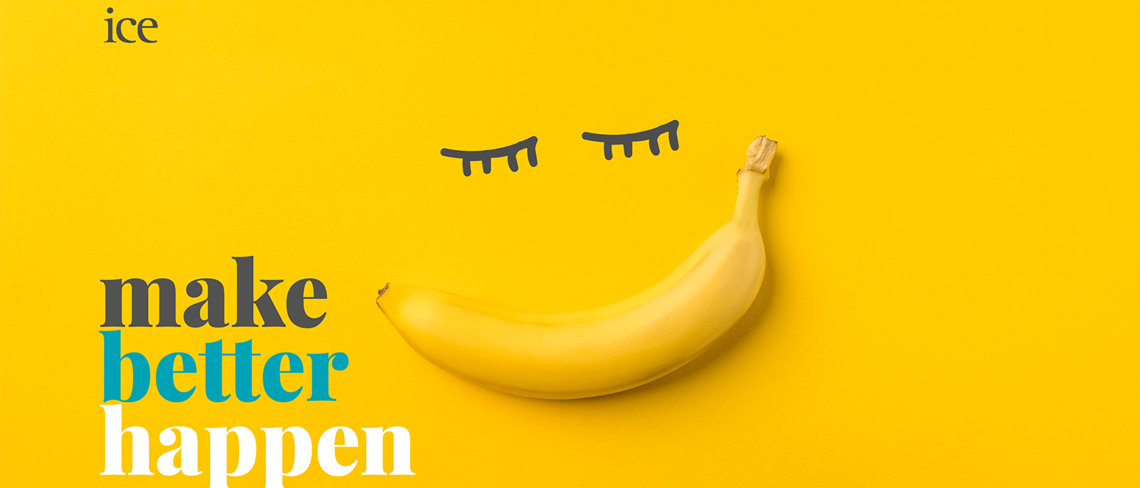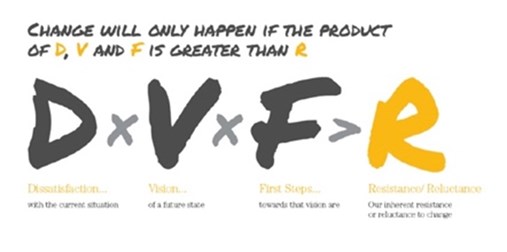
The world has changed. In recent months, the Covid-19 pandemic has affected all of us, the first live streamed pandemic has been played out on our TV screens, in our hospitals and in our living rooms and it will continue todirectly impact us in ways which we are yet even to consider.
The impact to our health, finances, relationships and our working lives is becoming clearer day-by-day; lives are still being taken, businesses are closing, and jobs are being lost. And yet it is perhaps now at this moment, one of the darkest in recent memory, that we need to look forward. Charles Darwin’s theory of evolution was underpinned by one central tenet, it is not the strongest of the species that survives but the most adaptable; a message maybe as relevant today as it was in 1859, perhaps more so.
Whilst change for change sake isn’t necessarily a good thing, I think we can be confident in saying that whatever the post-Covid world looks like, it won’t be the one which entered the pandemic. Organisations, your organisation, need to plan for the future, identify new strategies, new ways of doing ‘business’, right now standing still, holding on to what you’ve got, transacting, could be a losing hand.
So where do you start? In their excellent Harvard Business article What Really Works, Nitin Nohria, William Joyce, and Bruce Roberson outline their 4+2 factors, the must-have management practices that truly produce superior results. I’m going to focus on two of those six factors - Innovation and Partnerships.
Innovation
“An agile company turns out innovative products and services and anticipates disruptive events in an industry rather than reacting when it may already be too late.” Nohria, Joyce and Roberson.
If we are to prepare for the post-Covid world, we will need to dream up the new possible, to see what can be achieved and begin to deliver it. As the late, great Hans Rosling, the Swedish physician and academic, said so perfectly: “I'm not an optimist. That makes me sound naive. I'm a very serious ‘possibilist’. That’s something I made up. It means someone who neither hopes without reason, nor fears without reason, someone who constantly resists the overdramatic worldview. As a possibilist, I see all this progress, and it fills me with conviction and hope that further progress is possible.”
To dream up the possible, we need our people to become creative thinkers, problem solvers, decision makers, great leaders and identify collaborative partnerships. It is transformation that will drive the future and it is transformation that we should be implementing now, not in six months when things have blown over. Right now. If you haven’t started yet, you’re already behind in the race, and believe me it is a race.
It’s people that make things possible, they design the product, make the product, market the product, sell the product, deliver the product, it’s they who are fundamental to organisational success. If there’s one thing we’ve learned since February, it’s that great people make great organisations possible - the NHS (under-funded as it may be), Tesco, Sainsbury’s, Iceland (and all the other supermarkets) and the Post Office, to name but a few, have delivered (no pun intended) because when the ‘chips were down’ their people stood up to be counted, they made things possible.
You should be identifying and training key personnel, preparing them for the future so that they can prepare us for the future, as the US Navy Seals say: “Under pressure, you don’t rise to the occasion, you sink to the level of your training. That’s why we train so hard.”
We need to train and innovate for a better future, one which will look different from the one we thought we were anticipating not so long ago.
Partnerships
“Internally generated growth is essential, but companies that can also master key working partnerships can also be winners...When partnering, make the best use of both partners’ talents.” Nohria, Joyce and Roberson.
Forging partnerships is vital to the progress of a business in any industry. Not only could a partnership increase your customer base, it will provide opportunities to learn new strategies, develop new thinking, identify cost savings and potentially open up new revenue streams that you didn’t think were possible before.
If your organisation needs support to drive post-Covid change, then you’ll need to consider and identify the skills, people and partners that will implement and facilitate the transformation you need. Importantly you will require a partner that can facilitate the specific processes and procedures that will help you survive then thrive in a current and post-Covid business environment.
The key word is here facilitate. Why? Those who create, own; those who own, use; those who use, change; if you give ownership you promote engagement and delegate responsibility. What happens if you let people from outside your organisation overlay and imprint their ways of working? This is best answered by considering what my increasingly frustrated Mum used to say to me, “If I’ve told you once I’ve told you a thousand times!” If you keep telling people what to do, they don’t truly learn, and they will keep on asking you for help or worse failing!
A correctly facilitated approach, such as that used by ICE Creates, will utilise the collective knowledge and experience of your most important asset, your people, to identify and deliver long-lasting and impactful change.
By utilising the power and simplicity of the Bechard-Harris Change equation (D x V x Fs >R) we help organisations bring significant business benefits such as:
So, here’s the Covid-relevant question you should be asking yourselves right now. Which one of these four elements would not be useful to your organisation right now?
To OD practitioners the Bechard-Harris Change equation is the go-to starting point for identifying and manifesting sustainable change.
D is for Dissatisfaction with the current state. How bad or unproductive is it? How great or desperate is the need for change?
V is for Vision. Where do you want to be? What could the future hold and how are we going to get there?
F is for First steps. What are the critical and practical tasks that we must initiate to get things moving? What will happen then and after that?
If you don’t get the first three right then Resistance or Reluctance to change, the inertia that kills many of the best laid plans, will win out and the sustainability of any initiatives to build or improve or change will be halted in its tracks.

Whilst simple to explain the equation is a little harder to implement but that’s where a good partner will help facilitate, energise and motivate and just as importantly, constructively critique, hold to account and importantly they should not be afraid to say when things are going wrong. A Trusted Advisor will do just that. If you’re not familiar with the concept of the Trusted Advisor, check out the book of the same name by Green, Maister and Galford.
In essence a Trusted Advisor offers:
Partnerships based on the Trusted Advisor concept, are long-lasting and beneficial to both partners. So how do you find these magical unicorns that deliver so much benefit – ask. Ask your colleagues, friends, business contacts and networks, get case studies and references, but in my experience, people don’t refer bad companies.
And if the partners get it right then the payback can be substantial:
The list is endless, these are real life examples taken from an extensive list of organisation change projects ICE Creates have initiated, facilitated, supported and ‘helped’ deliver. Our most recent case studies include partnering with West Yorkshire Fire and Rescue to deliver change projects that saved £300,000, a similar project partnership saw the NHS save £500,000, with the right equation the numbers will add up.
The current situation is bleak but improving, and our thoughts are rightly with those suffering from Covid, their families, those fighting it on the NHS front line and those most vulnerable to the negative change it’s causing, but it’s not one without hope. The news about the development of potentially extremely effective vaccines offers some light, maybe some degree of normality might return soon, but it’s a normality unlike that which went before. Business is not as usual and may never be again. We have to transform, simply transacting won’t provide the robustness and longevity so critical to the economy, your people and carefully selected partners can help you prepare for a new future, together we can all #makebetterhappen.
We’d be happy to share these and other case studies with you, just ask we’ll send them no obligation, but more importantly we’d love to see how we can help your organisation prepare for the post-Covid future, but we need to start right now.